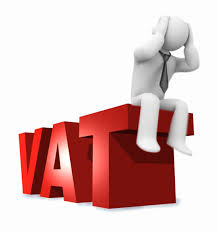Contract attorneys, VAT rules … and those dudes at HM Revenue & Customs
Catarina Conti
Director, Operations
19 September 2016 – So a few weeks ago Margrethe Vestager, the EU competition commissioner, announced that Ireland had given the company illegal state aid dating back a quarter of a century in a “sweetheart” tax arrangement. The EU’s verdict is the sharpest rebuke Ireland has received from Brussels since the country’s financial and banking collapse in 2008. If anything, Vestagerher’s implication that there is something fake about certain types of corporate activity by multinationals based in Ireland may be even more serious. What she was effectively saying is that Ireland is a tax haven.
Ah, the comfort of being able to arrange your life so as to pay no/little tax. The prerogative of corporations. Not so the lowly individual.
Especially contract attorneys in the UK. In the UK contract attorneys work under either the indidvidual PAYE (Pay As You Earn) system or the limited company (LTD) system wherein the contract attorneys meet the LTD guidelines set out by the UK tax office. Under this latter system, contract attorneys add a VAT charge to their invoice.
NOTE: this structure is mirrored in other EU countries.
All agencies operating in the UK follow the rules of the structures above. Well, ALMOST all of them which is the subject of this post.
Over the past 18 months two U.S. staffing agencies with no UK or EU presence have tried to skirt the issue by hiring LTD attorneys and saying “no VAT is due”. Quoting from an email they sent out (similar wording in each) they claim:
VAT is an EU tax, and so if a supply of services is considered as having been provided by a company outside the EU, then it is outside the scope of VAT, and VAT is not therefore due. We are a U.S. agency so we are not paying the VAT on your invoice.
Ok, fine. We can argue that one. But a number of UK contract attorneys have emailed us and said they have now run afoul of HM Revenue & Custom examiners for not assessing VAT on their invoices for those reviews. As if amongst all the other issues contract attorneys face, they have time for a battle with HMRC.
We consulted an attorney with considerable UK VAT experience, as well as a very helpful HMRC examiner (not a typo; he was helpful). They both proffered the same advice:
1. The services you render are subject to UK tax law. HMRC states “If the place of supply of your services is the UK, you must charge any UK VAT due and account for it to HMRC regardless of where your customer belongs”. There is a whole guideline issued by HMRC: VAT notice 741A – Section 2: Place of Supply of Services on the UK. The HMRC government website: https://www.gov.uk/government/publications/vat-notice-741a-place-of-supply-of-services/vat-notice-741a-place-of-supply-of-services
2. HMRC has a procedure for companies seeking to claim back the VAT: https://www.gov.uk/reclaim-vat
Our position is simple:
1. There are scores of UK-based/licensed agencies/vendors who follow the tax rules. We post jobs for about 28 of them. Work for them.
2. The burden of whether VAT (or any tax) should be assessed should fall on the prospective employer who has the staff, resources (time and money) to show the HMRC that it has an exemption and therefore is eligible to have that VAT tax payment returned. NOT YOU BATTLING WITH HMRC.
3. So question any agency/vendor who says “we are exempt; we are not paying for VAT”. Note that some U.S. staffing agencies with no UK or EU presence have been linking up with UK or EU payroll agents that will handle all of the tax issues/payments for them.
The UK contract attorney market is heating up, as is the contract attorney markets in France, Germany, and Italy, which is why everybody wants in. Similar tax/VAT issues will arise in these latter three countries. We will update this posting regarding those countries as soon as we can.
NOTE: many of you have written about the rules regarding the proper registration of temporary work agencies (Zeitarbeitfirmen) in Germany vis-a-vis contract attorney staffing. The body of laws regulating TWAs in Germany is the Arbeitnehmerüberlassungsgesetz — AÜG. That will require a separate post.
